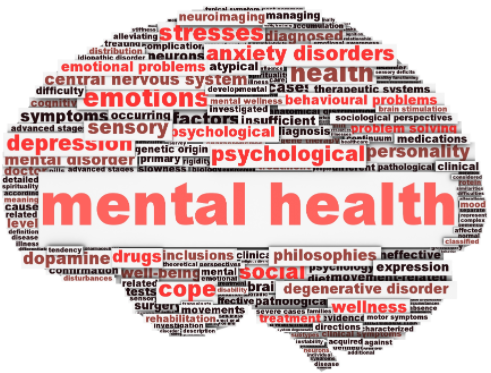GHS Student Council Organizes a Mental Health Awareness Week

March 9, 2018
This week GHS students and staff have walked past signs that say inspirational things, such as: “Life is tough, but you are tougher.” Posters also hang in the bathrooms to reminder students on how beautiful they look each day.
This is all part of Student Council Mental Health Awareness Week.
“Student council planned Mental Health Awareness Week because a few key members identified mental health as a topic that has a wide impact on GHS students and that has stigmas and silence surrounding it which cause people to misunderstand and avoid help. We thought this week could increase awareness and decrease misunderstanding,” Student Council Adviser Zach Geiger said
Student Council members are doing various things to promote positive mental health.
“We have set up a ‘Positive Note Spreading’ system, so that’s basically just a way to spread kindness throughout the school. Also there’s a google form where each person is allowed to send out one positive message, anonymously or with their name, to one person in the school & they will be all sent out on Friday,” student council president senior Lena Abukhamireh said. “Another thing we are doing is selling t-shirts to raise money for the NAMI (National Alliance on Mental Illness), which works with helping people with mental health disorders, providing resources, helping break the stigma, and overall just helps out with so many aspects of mental health. We are also doing announcements, that by now, you have probably all heard, that are meant just to bring attention to that days mental health disorder,”.
Geiger came up with this idea of Mental Health Awareness Week to inform people about the serious issue of mental illnesses everywhere.
“The ultimate goal of this week is to start a conversation about mental health disorders, since it is such a important topic, that unfortunately often times gets overlooked,” Abukhamireh said. “The activities and emails, posters, etc, are all aimed to bring a positive, stigma free, informative and place to be able to provide resources for students who need it.”
Each day, the school focuses on something different. For example, on Tuesday the focus was on eating disorders and Wednesday the focus was on anxiety disorders. Geiger sent emails every day explaining what the topic of the day was and facts that informed students about mental illnesses.
“We have sent an email to all students containing information about specific mental health topics each day. Students are able to order mental health awareness t-shirts, with proceeds being donated to the National Alliance on Mental Illness,” Geiger said. “Students can submit notes of positivity to be delivered on Friday. There were two announcements that encouraged the school to calm their minds (meditate) and to consider the seriousness of suicide.”
The email also listed symptoms of the mental illness and who you can reach out to if you feel like the symptoms match yours.
“I think it went very well. This campaign is completely student-planned and student-driven which increases the chances of a successful event. It is clear that GHS students really care about these important, complex issues and want to have a conversation,” Geiger said
This week is important to most Abukhamireh because she hopes it will help students better understand mental health issues.
“This is important to me because so, so many people have mental health disorders and there is not enough talk about them. They are super stigmatized, looked down upon, and there are a lot of resources that go unnoticed,” Abukhamireh said. “I know people who have a mental health disorder and who have struggled from this, all I have ever wanted to do was help them and others like them, so I thought that this could be a really good way of doing so!”
Hopefully this week will bring people to the realization that Mental Health is a conversation we all need to be a part of and not something we just brush off the shoulder.
“This week is important to me because I have witnessed the lasting harm that mental illness can have on individuals and families that I know when proper attention and understanding is not awarded to the people in need,” Geiger said. “I think that the widely-accepted stigmas attached to all forms of mental illness are learned early and the sooner that we can make students aware of common misconceptions and lesser known sources of help, the more powerful they will be in supporting the people around them.”